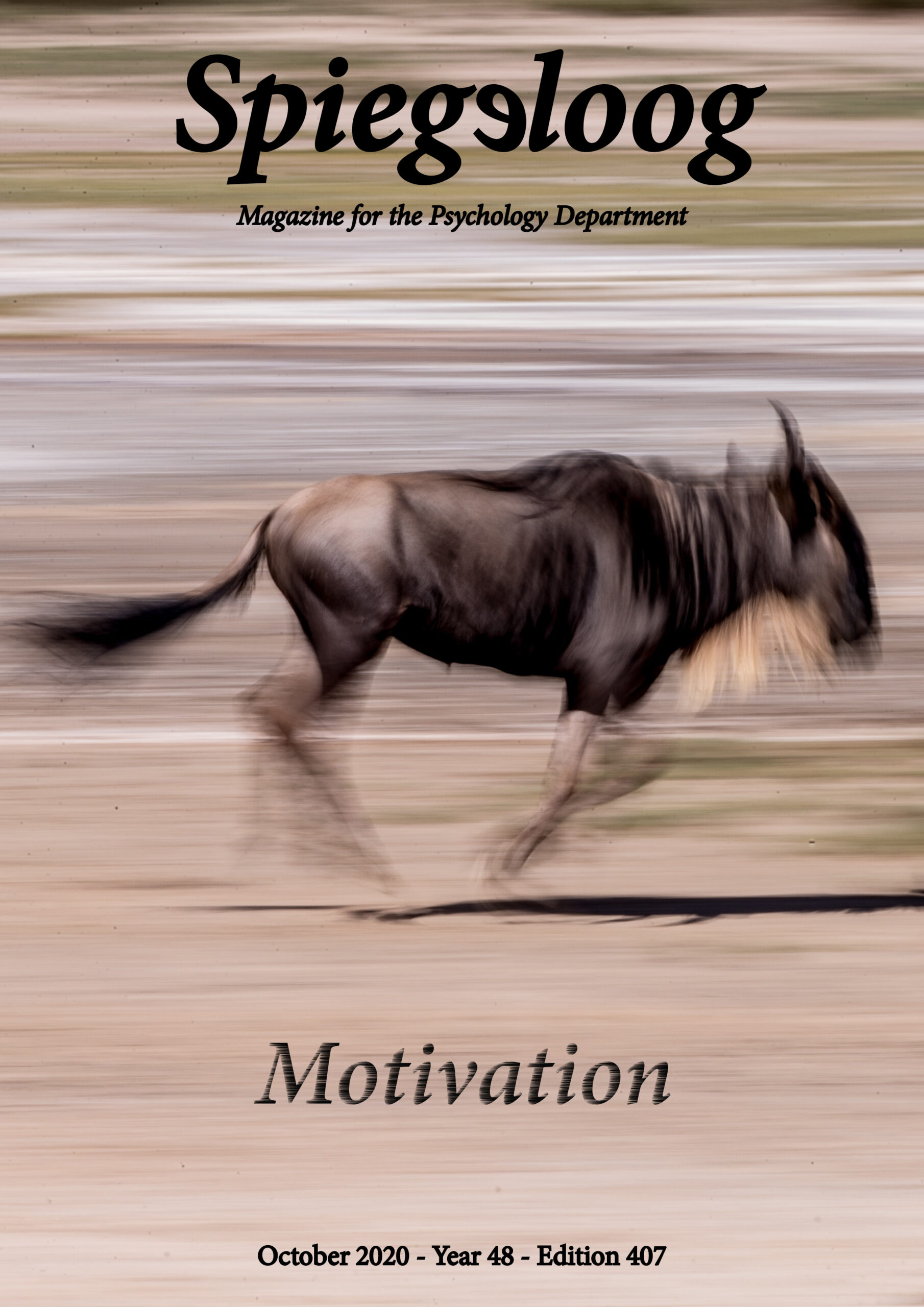

From some perspective, I am a motivational failure. Every day is filled with opportunities that I could take and with tasks that I have to complete, yet every day I need to trick myself into making use of these opportunities and into doing what I must. The point is: I am by no means naturally industrious. I only managed to overcome my idleness because of a few key insights that have helped me. I was somehow able to construct a mental framework through which I could motivate myself. What is motivation about? Which goals should I strive towards? How can I nudge myself to work towards these goals effectively? In the following sections, I will try to give a brief account of how my personal framework answers these questions, but it’s important to keep in mind that it’s just that: a personal answer that might not apply to you at all.
Among my friends in high school, I observed (quite unsurprisingly) different patterns in their motivation to do schoolwork. While some of them did their homework willingly and were eager to learn, others hated it. Friends who belonged to the latter group could only either enjoy themselves by doing their hobbies (e.g., playing the video game counter strike), or force themselves against their will to study for school. To me, it seems like this shows two fundamental ways you can spend your time: On the one hand, you can seek immediate gratification, doing whatever makes you happy in the present moment. On the other hand, you can strive for a future reward, working hard in the present moment so that you can reap the benefits later in life. While these two approaches seem like a dichotomy, I realized that motivation is about combining them. It is indeed possible to truly enjoy an activity that is at the same time also most beneficial for you in the future; and I think this is exactly what is meant by the saying: the journey is the reward.
We certainly know what brings us immediate gratification, but how do we know what is likely to bring us future rewards? Out of all the possible areas that I could focus on, which should I choose? I personally think that there are two aspects to consider. The first is that you need to have a kind of natural ability for it. Mathematics, for example, is surely a field that is likely to be useful in the future, but if a person does not have the required mathematical aptitude, he or she will have to put even more effort into learning it, disproportionate to the possible benefits. In other words, it makes sense to focus on what you are naturally good at because that’s where you will get the most out of each unit of effort spent. The second is that it has to be useful. No matter how good you are at making paper airplanes, it’s hard to imagine that it will give you future rewards because it adds so little value to our society. Of course, there are also activities where only one of them is required. For example, you don’t need to be good at sports in order to get future benefits from it (i.e., staying healthy), and doing what you are good at can have positive effects on your self-esteem without being useful for something specifically. Yet, overall, areas in which you are likely to benefit in the future are those that both are useful and for which you have a natural ability.
An unfortunate consequence of these considerations is that I had to change what I personally like since I couldn’t change what gives me future rewards (because usefulness and natural ability are unlikely to change). Hence, I had to shift my personal passions in such a way that they align with actions that give me future benefits, and not the other way round. But how do you do that?
Part of my personal answer to this is, as cliché as it sounds, that it’s a matter of openness and will. I have encountered many subjects (in high school) that I initially didn’t find interesting at all, but I tried to give these subjects a chance and did my best to convince myself that they are actually fascinating. In hindsight, I’m happy that I did it that way because not only was my time in high school more pleasant, but I also learned much more than if I had forced myself to study for these subjects.
Another part of my personal answer is that creating small habits for activities that I’m generally too lazy to do can be very effective. For example, I used to live on the 12th floor when I was a student in Amsterdam, and so I made it a rule to only walk up the stairs and never take the elevator. In this way, I didn’t need to spend any cognitive effort convincing myself that I should exercise, but I created a habit that made sure I would get a minimum of exercise every day.
A different example is my role as a contributor here at Spiegeloog. As someone who is pursuing a career as a researcher, I will need lots of writing experience, but I simply don’t do it on my own. Hence, I decided to join the editors at Spiegeloog, because this is an easy way to make writing a habit. Every week, the editors convene and discuss the progress of the next issue, and if I’m behind schedule with my contribution (as I am now), one of our editors in chief will kindly remind me that I should hurry up a bit. For me, such an environment is much more conducive to my writing experience than an informal New Year’s resolution that I’m not going to follow anyway. Admittedly, it can be a bit stressful at times and there is more external pressure on me that way, but this doesn’t matter to me since I have come to enjoy learning about all those different topics and writing them up. It’s not something I do simply to get more writing experience for my career, but because I find writing itself as well as all the different topics I have written about inherently interesting.
I have a friend who is truly industrious; who spends almost every second of the day striving for the future while enjoying life at the same time. It comes naturally to him; he doesn’t know procrastination or laziness. I am not like that. But this doesn’t mean I cannot make the best of my life and motivate myself for tasks that have great future benefits. With openness, will, and a few cognitive tools I managed to get myself into a state in which I’m both productive and happy at the same time. Of course, that doesn’t mean everything is working perfectly, and it never will. There will always be things I haven’t considered, things that upset my plans – but these are part of what makes life exciting. You may well disagree with everything I have said here, and that’s fine. Motivation is about you personally, and even if my framework doesn’t work for you, I hope you’ll be able to find your own personal recipe of making your life more interesting, engaging, and enjoyable, while at the same time doing whatever is best for your own future development.

From some perspective, I am a motivational failure. Every day is filled with opportunities that I could take and with tasks that I have to complete, yet every day I need to trick myself into making use of these opportunities and into doing what I must. The point is: I am by no means naturally industrious. I only managed to overcome my idleness because of a few key insights that have helped me. I was somehow able to construct a mental framework through which I could motivate myself. What is motivation about? Which goals should I strive towards? How can I nudge myself to work towards these goals effectively? In the following sections, I will try to give a brief account of how my personal framework answers these questions, but it’s important to keep in mind that it’s just that: a personal answer that might not apply to you at all.
Among my friends in high school, I observed (quite unsurprisingly) different patterns in their motivation to do schoolwork. While some of them did their homework willingly and were eager to learn, others hated it. Friends who belonged to the latter group could only either enjoy themselves by doing their hobbies (e.g., playing the video game counter strike), or force themselves against their will to study for school. To me, it seems like this shows two fundamental ways you can spend your time: On the one hand, you can seek immediate gratification, doing whatever makes you happy in the present moment. On the other hand, you can strive for a future reward, working hard in the present moment so that you can reap the benefits later in life. While these two approaches seem like a dichotomy, I realized that motivation is about combining them. It is indeed possible to truly enjoy an activity that is at the same time also most beneficial for you in the future; and I think this is exactly what is meant by the saying: the journey is the reward.
We certainly know what brings us immediate gratification, but how do we know what is likely to bring us future rewards? Out of all the possible areas that I could focus on, which should I choose? I personally think that there are two aspects to consider. The first is that you need to have a kind of natural ability for it. Mathematics, for example, is surely a field that is likely to be useful in the future, but if a person does not have the required mathematical aptitude, he or she will have to put even more effort into learning it, disproportionate to the possible benefits. In other words, it makes sense to focus on what you are naturally good at because that’s where you will get the most out of each unit of effort spent. The second is that it has to be useful. No matter how good you are at making paper airplanes, it’s hard to imagine that it will give you future rewards because it adds so little value to our society. Of course, there are also activities where only one of them is required. For example, you don’t need to be good at sports in order to get future benefits from it (i.e., staying healthy), and doing what you are good at can have positive effects on your self-esteem without being useful for something specifically. Yet, overall, areas in which you are likely to benefit in the future are those that both are useful and for which you have a natural ability.
An unfortunate consequence of these considerations is that I had to change what I personally like since I couldn’t change what gives me future rewards (because usefulness and natural ability are unlikely to change). Hence, I had to shift my personal passions in such a way that they align with actions that give me future benefits, and not the other way round. But how do you do that?
Part of my personal answer to this is, as cliché as it sounds, that it’s a matter of openness and will. I have encountered many subjects (in high school) that I initially didn’t find interesting at all, but I tried to give these subjects a chance and did my best to convince myself that they are actually fascinating. In hindsight, I’m happy that I did it that way because not only was my time in high school more pleasant, but I also learned much more than if I had forced myself to study for these subjects.
Another part of my personal answer is that creating small habits for activities that I’m generally too lazy to do can be very effective. For example, I used to live on the 12th floor when I was a student in Amsterdam, and so I made it a rule to only walk up the stairs and never take the elevator. In this way, I didn’t need to spend any cognitive effort convincing myself that I should exercise, but I created a habit that made sure I would get a minimum of exercise every day.
A different example is my role as a contributor here at Spiegeloog. As someone who is pursuing a career as a researcher, I will need lots of writing experience, but I simply don’t do it on my own. Hence, I decided to join the editors at Spiegeloog, because this is an easy way to make writing a habit. Every week, the editors convene and discuss the progress of the next issue, and if I’m behind schedule with my contribution (as I am now), one of our editors in chief will kindly remind me that I should hurry up a bit. For me, such an environment is much more conducive to my writing experience than an informal New Year’s resolution that I’m not going to follow anyway. Admittedly, it can be a bit stressful at times and there is more external pressure on me that way, but this doesn’t matter to me since I have come to enjoy learning about all those different topics and writing them up. It’s not something I do simply to get more writing experience for my career, but because I find writing itself as well as all the different topics I have written about inherently interesting.
I have a friend who is truly industrious; who spends almost every second of the day striving for the future while enjoying life at the same time. It comes naturally to him; he doesn’t know procrastination or laziness. I am not like that. But this doesn’t mean I cannot make the best of my life and motivate myself for tasks that have great future benefits. With openness, will, and a few cognitive tools I managed to get myself into a state in which I’m both productive and happy at the same time. Of course, that doesn’t mean everything is working perfectly, and it never will. There will always be things I haven’t considered, things that upset my plans – but these are part of what makes life exciting. You may well disagree with everything I have said here, and that’s fine. Motivation is about you personally, and even if my framework doesn’t work for you, I hope you’ll be able to find your own personal recipe of making your life more interesting, engaging, and enjoyable, while at the same time doing whatever is best for your own future development.



